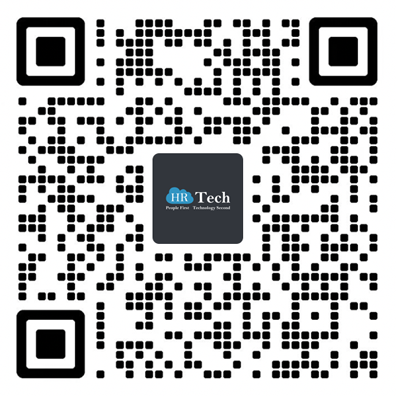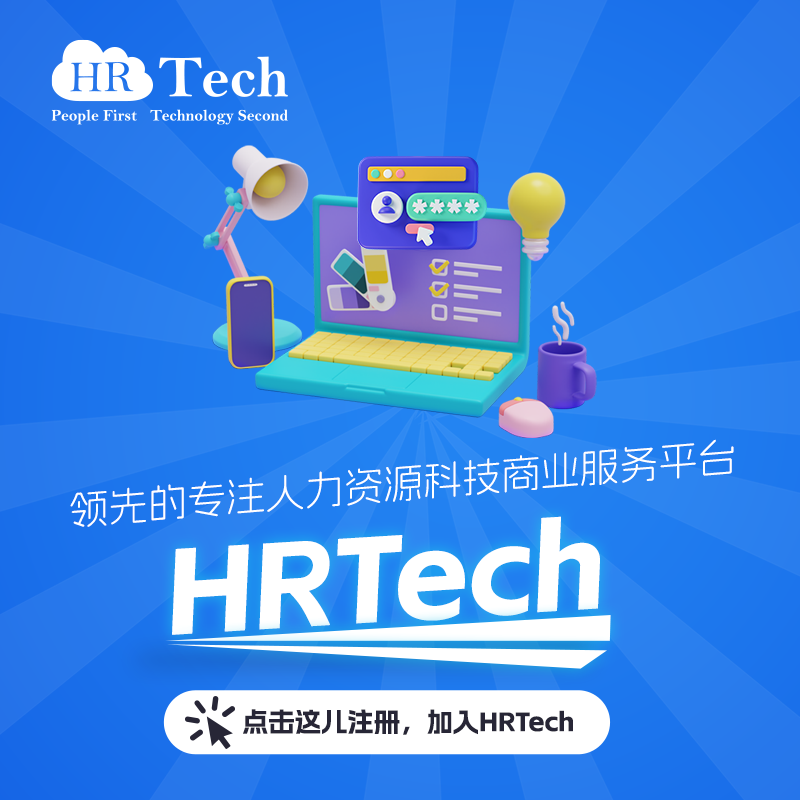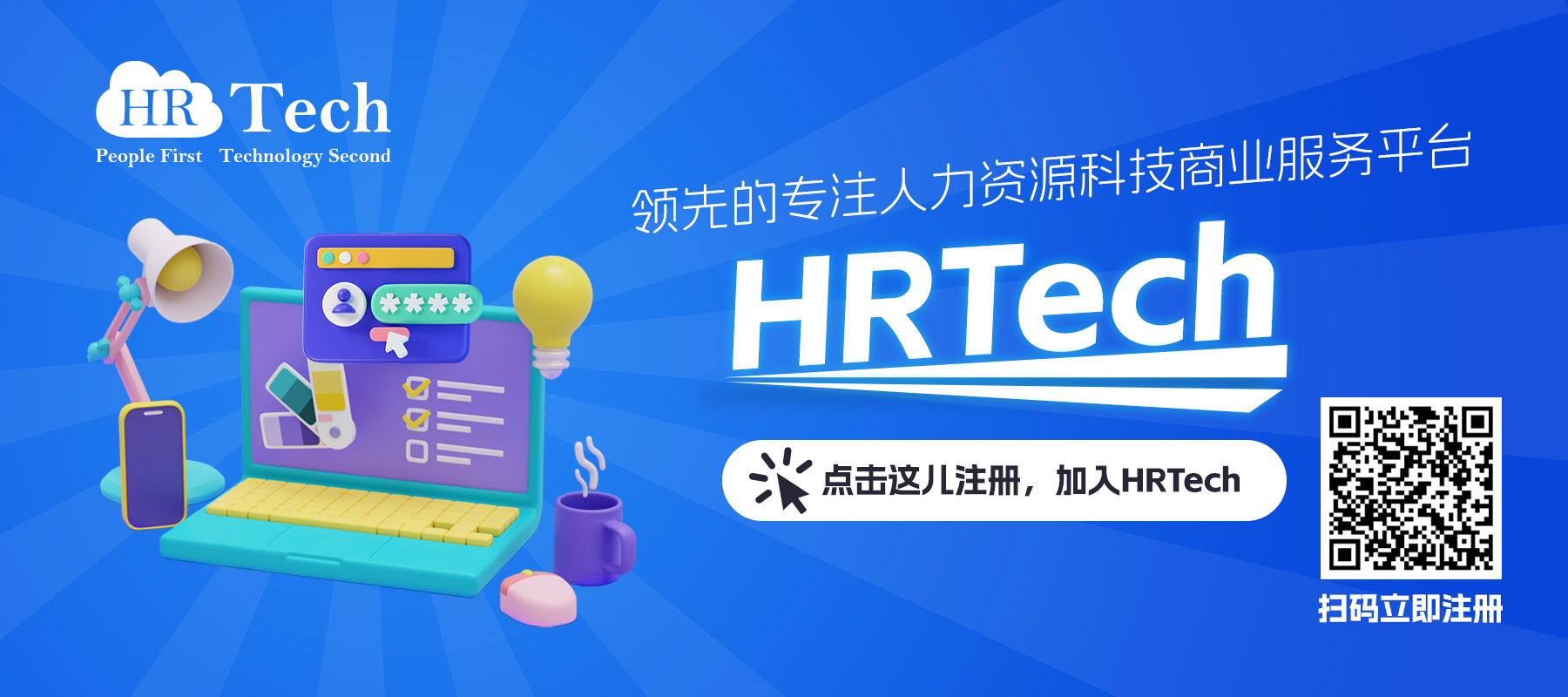-
 资讯
资讯
HRTech行业110亿美元收购案:Thoma Bravo拟私有化Dayforce,揭示HR科技加速整合新趋势
HRTech概述:私募股权巨头Thoma Bravo正与Dayforce洽谈一笔超过110亿美元的收购案,若成将使这家总部位于明尼阿波利斯的HR软件公司退市。消息公布后,Dayforce股价暴涨28%,市值约106亿美元。这起交易不仅是资本运作,更反映出全球HR科技行业正进入并购驱动的集中化阶段,未来三到五年或将出现更多类似案例,重塑人力资源管理市场格局。
近日,私募股权巨头 Thoma Bravo 传出消息,正在与人力资本管理软件提供商 Dayforce Inc. 进行深入洽谈,拟以超过 110亿美元 的估值将这家总部位于美国明尼阿波利斯的公司私有化。若交易达成,这将成为HR科技领域近年来最大规模的私募收购之一。
市场反应:股价飙升,资本重估
消息传出后,Dayforce股价在纽约交易时段盘中一度暴涨28%,创下七年多来最大单日涨幅,市值约106亿美元。尽管Dayforce在2021年至2024年间实现超过70%的营收增长,并显著改善盈利能力,但股价自2021年高点起已累计下跌约60%。这反映了资本市场对其估值的谨慎,也为私有化创造了条件。
产业格局:私募力量推动新一轮整合
Thoma Bravo近年来在科技领域动作频频:
2025年4月,以106亿美元收购波音的飞行导航及数字资产
2025年7月,以20亿美元收购餐饮软件公司Olo Inc.
近期还传出正在洽谈收购Verint Systems
这些交易表明,Thoma Bravo正在不断加码企业服务和软件市场。
行业观察:HR科技并购潮正在形成
在人力资本管理软件领域,近来并购案例频频:
Paychex 以41亿美元 收购 Paycor HCM
ADP 以12亿美元收购 WorkForce Software
这些案例与Dayforce收购案共同说明,全球HR科技正进入并购驱动的集中化阶段。
背后逻辑包括:
企业用户更倾向于选择端到端整合平台
AI应用加速,厂商需要规模与研发投入支撑
疫情后估值回落,为资本介入提供了窗口
长远影响:从分散创新走向平台整合
若Thoma Bravo成功完成Dayforce收购,将对HR科技格局产生深远影响:
大型平台通过并购扩张份额
中小厂商面临被整合或差异化竞争的压力
企业用户可能受益于一体化服务,但需关注创新放缓与供应商集中度上升
HRTech观察:
这起110亿美元的潜在交易不仅是一桩资本运作,更是HRTech行业发展阶段的标志。随着AI和数字化的加速,平台化和行业整合趋势已不可逆转。未来三到五年,类似的并购案例可能会频繁出现,全球人力资源管理市场格局将迎来新一轮重塑。全球最新HR科技动态,请关注HRTechChina
信息来源:Bloomberg、GlobeNewswire、公司公告与公开市场数据
-
 资讯
资讯
【财报】智联招聘2025财年实现收入26.23 亿元人民币,同比去年的30.12亿元下降 13%
HRTech报道:根据澳大利亚招聘公司SEEK刚刚发布的 2025财年( 2024年7月1日 – 2025年6月30日)业绩中,作为其在中国的重要投资,智联招聘(Zhaopin)的财务表现备受关注。
智联招聘2025 财年实现收入 26.23 亿元人民币,相比 2024 财年的 30.12 亿元下降 13%。其中,在线招聘业务收入 14.81 亿元(同比下降 10%),增值服务收入 11.42 亿元(同比下降 16%)。尽管收入端面临明显压力,但得益于运营效率提升与成本控制,EBITDA 仍保持 2.03 亿元,同比增长 1%。
在 SEEK 的财务报表中,智联招聘继续以联营投资的形式体现。2025 财年,SEEK 对 智联招聘 的股权投资账面价值为 4.52 亿澳元,高于上年的 4.33 亿澳元,其中约 1,230 万澳元增值来自人民币兑澳元的汇兑因素。同时,智联招聘 为 SEEK 贡献了 660 万澳元的联营利润,同比增长 136%。
管理层指出,智联招聘收入下降的主要原因是宏观经济环境趋紧、部分低利润业务的收缩以及行业竞争加剧。但在此背景下,公司仍展现了较强的经营韧性:EBITDA 保持增长,利润分摊改善,并通过运营优化降低了财务压力。
智联招聘财务表现(FY2025 vs FY2024)
总收入:FY2025 为 26.23亿元人民币,低于 FY2024 的 30.12 亿元,同比下降 13%。
收入构成:
在线招聘收入:FY2025 为 14.81 亿元,同比下降 10%(FY2024:16.46 亿元);
增值服务收入:FY2025 为 11.42 亿元,同比下降 16%(FY2024:13.65 亿元)。
EBITDA:
FY2025 为 2.03 亿元,相比 FY2024 的 2.02 亿元,微增 1%,体现了公司在营收承压下依靠运营效率提升保持盈利能力。
HRTech观点:
尽管智联招聘在 FY2025 面临收入下滑的挑战,但其在中国招聘市场的地位依然稳固,且通过效率管理实现了利润端的正增长。对 SEEK 而言,智联招聘不仅是其全球投资组合中的重要一环,也反映了中国市场在全球招聘生态中的战略价值。
更多请关注 HR Tech,为你带来全球最新 HR 科技资讯。
-
 资讯
资讯
AI赋能:职场个性化学习的未来
随着数字经济的发展,对持续学习和技能提升的需求从未如此迫切。企业必须确保员工能够跟上快速的技术进步和行业变革。传统的培训项目通常采用“一刀切”的方法,这可能无法有效满足不同学习风格或技能水平的需求。然而,基于人工智能的个性化学习正在通过提供定制化的教育体验,推动技能发展和提升工作效率,从而革新企业培训。这种创新的技能提升方法有望塑造未来人才发展的方向。
向个性化学习的转变
历史上,企业培训依赖于标准化程序,向所有员工提供统一内容。虽然这些方法提供了基础知识,但往往无法吸引学习者或解决个人能力差距。员工有不同的学习偏好、节奏和职业目标,因此个性化方法更有效。人工智能驱动的个性化学习通过利用人工智能分析员工技能、学习行为和绩效指标,转变传统培训,确保定制化学习体验。
人工智能驱动的学习系统利用大数据、机器学习和自然语言处理技术,为员工定制个性化学习路径。与提供通用课程不同,人工智能会评估员工的当前技能水平,并推荐针对性的学习材料。这些系统还能实时调整,确保学习者获得与自身进展相匹配的、相关且富有吸引力的内容。
人工智能驱动的个性化学习如何运作?
人工智能驱动的学习平台从多个来源收集并分析数据,包括绩效评估、过往培训记录、岗位职责及个人偏好。该技术随后利用以下方式生成定制化学习模块:
自适应学习算法——人工智能识别知识缺口并推荐个性化培训内容,随着员工进步动态调整课程。
机器学习洞察——系统持续从用户互动中学习,优化推荐并提升培训效果。
自然语言处理(NLP)——人工智能驱动的聊天机器人和虚拟助手提供即时反馈和指导,提升学习体验。
微学习与游戏化——人工智能提供短小精悍的课程和互动模块,提高参与度和知识保留率。
预测分析——人工智能预判未来技能需求,并主动推荐培训以帮助员工应对即将到来的行业变化。
这些组件协同工作,打造无缝、互动且高度有效的技能提升体验。
人工智能驱动的个性化学习的优势
1. 提升员工参与度与动力
传统培训常因单调乏味导致员工失去兴趣。个性化学习则使培训内容更贴合员工的职业目标,从而提升动力。人工智能驱动的平台根据个人兴趣与优势提供推荐,使学习过程更具趣味性和意义。
2. 高效技能发展
员工无需浪费时间在无关培训上,而是根据技能差距获得针对性课程。人工智能确保学习路径与个人角色及行业需求相匹配,加速技能掌握。这种效率在科技、医疗和金融等快速发展的行业尤为宝贵。
3. 实时绩效跟踪与反馈
人工智能驱动的平台提供持续评估和即时反馈,帮助员工跟踪学习进展。这种实时评估使学习者能够了解自身优势与不足,并相应调整学习策略。
4. 可扩展性与成本节约
与传统教师主导的培训不同,人工智能驱动的学习具有高度可扩展性。组织可同时培训大量员工,无需额外承担培训师、材料或场地成本。培训流程的自动化还减轻了行政负担,释放资源用于其他业务优先事项。
5. 未来 workforce 的保障
随着行业演变,员工必须持续更新技能以保持竞争力。人工智能驱动的教育使企业能够预见技能差距并为员工未来角色做好准备。通过分析 workforce 趋势,人工智能建议与新兴行业需求相匹配的课程,确保长期就业能力。
人工智能驱动的个性化学习的未来
未来的工作场所培训在于持续的人工智能驱动学习体验,这些体验能够适应员工和企业不断变化的需求。以下几个新兴趋势将进一步塑造人工智能驱动的技能提升的未来:
增强现实与虚拟现实(AR/VR)培训——人工智能将与AR和VR技术融合,打造沉浸式、实践性强的培训体验。
人工智能生成内容——人工智能将自主生成个性化学习材料,提升内容开发效率。
情感人工智能——先进的人工智能系统将分析员工情绪与参与度,并据此调整培训内容。
终身学习生态系统——人工智能驱动的平台将促进持续教育,使员工能够在整个职业生涯中不断提升技能。
人工智能驱动的个性化学习正在重新定义 workplace 培训,提供定制化、高效且可扩展的技能提升解决方案。通过利用人工智能,组织可以提升员工参与度,加速技能发展,并为未来做好准备。技能提升的未来是智能的、适应性的和高度个性化的——由人工智能的变革力量驱动。
-
 资讯
资讯
Workday刚披露了一起数据泄露事件:社会工程攻击成为企业安全新隐患
HRTech概述:Workday 确认近期发生数据泄露:黑客通过社会工程手法入侵一家第三方客户关系数据库,窃取了包含姓名、邮箱、电话号码在内的联系信息。Workday 表示,目前“没有迹象”显示其客户租户(customer tenants)或其中的人力资源与员工数据被访问,但未明确受影响个体数量与对象(如员工或客户)。该事件与近期针对 Salesforce 托管数据库的攻击潮高度一致:包括 Google、Cisco、澳航 Qantas、珠宝零售商 Pandora 在内的多家大型企业均被盗取大量联系人数据。
2025年8月18日 —— 全球人力资源科技巨头 Workday 确认遭遇一起新的数据泄露事件,再次凸显社会工程攻击对企业系统构成的严重威胁。
根据公司在官方博客发布的声明,攻击者未经授权入侵了一家 第三方客户关系管理(CRM)平台,窃取了部分商业联系信息,包括姓名、电话号码和电子邮箱地址。
Workday 强调,其 核心系统保持安全,没有迹象显示客户租户数据或员工敏感信息遭到泄露。不过,公司已切断与受影响系统的连接,并提醒客户提高警惕,防范未来可能出现的网络钓鱼或欺诈攻击。
更大规模攻击的一部分
调查人员指出,此次事件与近期针对 Salesforce CRM 环境的全球性攻击行动密切相关。过去数月,Google、Cisco、澳洲航空(Qantas)和 Pandora 等大型企业都曾遭遇类似入侵。
安全研究认为,黑客组织 Scattered Spider 和 ShinyHunters 可能是幕后推手。这些组织广泛使用 社会工程学手段,例如冒充 HR 或 IT 部门,通过电话和短信欺骗员工,从而获取系统访问权限。
人为因素成最大隐患
这一事件提醒企业,尽管云平台和企业应用已成为运营核心,但黑客越来越倾向于利用 人为因素 而非技术漏洞突破防线。
专家指出,警觉、身份验证以及防范社会工程攻击的机制,如今已与防火墙和加密等传统技术手段同样重要。企业需要进一步强化多因素认证(MFA)、限制外部连接应用的权限,并提升员工的安全意识培训,以降低此类风险。
信息来源:Workday 官方博客、相关行业媒体报道
-
 资讯
资讯
【美国】员工福利保险与HR软件公司Employee Navigator 获得1 亿美元融资,专注打造一体化福利与人力资源平台
HRTech概述:美国福利与HR软件平台 Employee Navigator 宣布完成1亿美元融资,投资方为 JMI Equity 与 Spectrum Equity。本轮为少数股权投资,随后还发起了1.2亿美元要约收购,为早期股东和2023年收购对象 Ease 的投资人提供退出渠道。目前该平台服务18万家美国企业、1300万员工、5000+保险经纪人,已与500+家保险公司与薪资系统集成。未来计划扩展AI产品、提升大型企业支持能力,并增强HR模块功能。
【HRTech讯】美国马里兰州贝塞斯达 — 员工福利与人力资源软件提供商 Employee Navigator 宣布完成 1 亿美元融资,由现有投资方 JMI Equity 和 Spectrum Equity 领投。与此同时,公司还发起了一项 1.2 亿美元的要约收购(tender offer),为包括被收购平台 Ease 在内的早期股东提供流动性退出机会。
Employee Navigator 成立于 2008 年,起初专注为保险经纪人提供在线福利注册工具,近年来逐步发展为一体化的福利与 HR 管理平台。通过与美国超过 500 家保险公司、薪资系统与第三方管理员(TPA)集成,公司目前已服务超过 18 万家企业、1300 万名员工,并与 5,000 多家保险经纪人建立合作。
“在过去两年中,我们一直致力于整合 Employee Navigator 与 Ease 的系统,兑现将两者优势融合的承诺。”Employee Navigator 创始人兼 CEO George Reese 表示,“展望未来,我们将持续拓展对大型企业的服务能力,开发更多基于 AI 的自动化工具,帮助经纪人提升运营效率,并为 HR 团队提供更智能的支持系统。”
此次融资得到了现有投资方的高度认可。JMI Equity 合伙人 Dave Greenberg 表示:“自 2020 年首轮投资以来,我们对该团队的执行力和市场定位愈发信心坚定。公司在服务覆盖、产品功能和增长节奏方面均表现出色。”Spectrum Equity 董事总经理 Vic Parker 补充道:“在推动 Ease 收购和整合方面,Employee Navigator 已远超我们的预期,我们非常乐于继续支持其发展。”
目前,Employee Navigator 的主要产品涵盖以下三大核心领域:
一是福利管理,企业可通过系统为员工配置和管理保险、健康、退休等各类福利计划,同时自动生成 ACA 报表,实现合规管理。
二是轻量级人力资源工具,帮助中小企业完成入职、离职、员工信息、PTO 管理等基础 HR 操作。
三是与保险经纪人及薪资系统的深度集成,实现保费同步、数据自动对接,提升管理效率,减少人工错误。
展望未来,Employee Navigator 将持续投入 AI 应用和产品升级,进一步巩固其在福利与 HR 管理技术领域的领先地位。
JMI Equity 合伙人 Dave Greenberg 表示:“自 2020 年首次投资以来,我们对 George Reese 及其团队在战略规划和执行方面的能力愈发有信心。因此此次有机会继续加码投资,我们感到非常兴奋。随着服务企业超过 18 万家,团队已不断验证其在福利和人力资源产品方面的领先能力。我们坚信,公司将持续实现强劲的长期增长与盈利。”
Spectrum Equity 董事总经理 Vic Parker 补充道:“当 Employee Navigator 向我们提出收购 Ease 的构想时,他们展示了一个极具战略意义的整合方案。如今,他们的执行成果已超出预期。我们非常高兴能够继续追加投资。”
关于 Employee Navigator
Employee Navigator 是值得信赖的福利与人力资源软件平台,已与全美 500 多家领先的保险公司、薪资平台和 TPA 完成集成。当前,其服务网络覆盖超过 180,000 家美国企业和 5,000 多家保险经纪人,帮助各类企业简化员工福利管理流程。
-
 资讯
资讯
【重磅】SAP宣布收购美国招聘软件SmartRecruiters:整合创新人才招聘产品组合,助力企业吸引和留住顶尖人才
HRTech概述:2025年8月1日,SAP宣布达成收购知名人才招聘软件平台 SmartRecruiters的协议,计划将其整合进 SAP SuccessFactors 的人力资本管理(HCM)套件,以增强企业端到端的招聘能力。SmartRecruiters 以其高容量招聘、自动化招聘流程以及 AI 支持的候选人体验在业界闻名,客户包括 Amazon、Visa、麦当劳等全球4000多家企业。
美国旧金山和德国沃尔多夫—2025年8月1日—SAP(纽交所代码:SAP)与SmartRecruiters今日宣布,SAP已达成协议,收购领先的人才招聘(TA)软件提供商SmartRecruiters。SmartRecruiters在大批量招聘、招聘自动化以及基于人工智能的候选人体验和参与度方面的深厚专业知识,被认为是SAP SuccessFactors人力资本管理(HCM)套件的理想补充。此次收购将增强SAP一体化HCM套件的功能,使客户拥有在日益激烈的竞争环境中吸引和留住顶尖人才所需的工具。
SmartRecruiters 强大、用户友好的界面和无缝的工作流程将与 SAP 强大的人力资源工具相得益彰,从而改善决策制定、缩短招聘时间,并为求职者提供更佳体验。两家公司提供的嵌入式分析和人工智能驱动的建议将为人才库、招聘瓶颈和劳动力规划提供丰富的洞察。
SAP SE 执行董事会成员、SAP 产品与工程部门负责人 Muhammad Alam 表示:“招聘合适的人才不仅是人力资源部门的首要任务,更是业务部门的首要任务。通过此次计划中的收购,我们将帮助客户吸引和聘用最优秀的人才,使他们能够快速、灵活地推进人才招聘计划,同时降低总体拥有成本。客户将能够在一个系统中管理整个候选人生命周期——从招聘、面试到入职培训等等——从而简化招聘人员、招聘经理,尤其是候选人的体验。”
客户将获得增强的、人工智能赋能的招聘和聘用功能,从而提高申请人追踪和候选人筛选的效率。数据驱动的招聘和聘用分析将直接汇入 SAP 现有的 HCM 工具,提供单一的记录系统和统一的数据,实现合规、无缝的运营。在可预见的未来,SmartRecruiters 产品组合也将继续独立提供。
SmartRecruiters 首席执行官 Rebecca Carr 表示:“SmartRecruiter 的使命始终是让招聘变得简单。与 SAP 的合作将为全球企业带来巨大的机遇,使其能够受益于我们行业领先的人才招聘方法。我非常高兴此次计划中的收购将为我们的客户、合作伙伴和员工带来机遇,让我们携手共创招聘的未来。”
SmartRecruiters 由 Jerome Ternynck 于 2010 年创立,其软件即服务解决方案和平台使全球 4,000 多个组织能够高效地端到端管理其招聘工作流程,为招聘人员、招聘经理和候选人提供引人注目的体验。
该交易预计将于2025年第四季度完成,但需满足包括监管部门批准在内的惯例成交条件。交易条款尚未披露。Insight Partners、W Capital Partners、Rembrandt Venture Partners 和 Silver Lake Waterman 是 SmartRecruiters 的投资者。摩根大通 (JP Morgan) 担任 SmartRecruiters 的独家财务顾问,Gunderson Dettmer 担任法律顾问。
关于 SmartRecruiters
SmartRecruiters 是一家致力于为全球领先企业转型招聘流程的招聘人工智能公司。SmartRecruiters 面向全球规模打造,提供基于人工智能的招聘平台,自动化并优化整个人才招聘流程,确保更快、更明智的招聘决策。超过 1.4 亿求职者和 4,000 家企业(包括亚马逊、Visa 和麦当劳)依靠 SmartRecruiters 打造成功的团队。
如需了解更多信息,请访问www.smartrecruiters.com。
关于 SAP
作为企业应用和商业人工智能领域的全球领导者,SAP (NYSE: SAP) 站在商业与科技的交汇点。50 多年来,企业始终信赖 SAP,通过整合财务、采购、人力资源、供应链和客户体验等关键业务运营,发挥其最大优势。欲了解更多信息,请访问www.sap.com。
-
 资讯
资讯
【美国】Bullhorn 收购 TargetRecruit:开启医疗招聘智能中台新时代
HRTech概述:2025年8月1日(宜收购),美国领先的招聘软件公司 Bullhorn 宣布收购总部位于休斯顿的 TargetRecruit。这家专注于 Salesforce 平台的前台与中台招聘解决方案提供商加入 Bullhorn,将其 Salesforce 生态系统用户总数扩大至近15万。此次并购显著增强了 Bullhorn 在医疗行业招聘市场的影响力,尤其是在增长迅猛的 locums(临时医生)与 per diem(按天计费)岗位招聘方面。
此次收购扩大了 Bullhorn 的医疗保健人员配置范围,并为 TargetRecruit 客户提供人工智能和中台专业知识的创新
波士顿——2025年8月1日——全球领先的人力资源和招聘软件供应商Bullhorn今日宣布收购TargetRecruit。TargetRecruit是一家总部位于休斯顿的供应商,提供基于Salesforce平台构建的前台和中台解决方案。此次收购深化了Bullhorn在支持基于Salesforce开展业务的公司的战略投资,并巩固了其作为Salesforce生态系统中领先招聘独立软件供应商的地位。
随着 TargetRecruit 的加入,Bullhorn 的 Salesforce 用户群将增长至近 15 万,进一步巩固了其规模和覆盖范围。此次收购增强了 Bullhorn 在医疗保健人员配置市场的地位,尤其是在临时医生和每日津贴这两个行业增长最快的领域。TargetRecruit 的客户将受益于 Bullhorn 对医疗保健人员配置的深度投入,获得经过验证的最佳实践、领域专业知识和工具,从而帮助他们自信地扩展业务。
在招聘行业,基于 Salesforce 平台打造优秀的独立软件供应商 (ISV) 业务极其困难,尤其是在中台,因为它是最复杂且成本最高的领域之一。Bullhorn 凭借其丰富的资源、成熟的产品和卓越的实施经验,成功解决了这一挑战。该公司在 Salesforce 平台上对中台和 Marketplace 合作伙伴关系的深度投资,将为 TargetRecruit 客户释放更大的价值。
Bullhorn Salesforce 产品高级副总裁 Jonathan Novich 表示:“TargetRecruit 在医疗保健人员配置领域享有盛誉,我们非常高兴欢迎他们的客户加入 Bullhorn 社区。此次收购不仅扩大了我们的 Salesforce 生态系统覆盖范围,还为 TargetRecruit 客户提供了清晰的创新之路,并依托 Bullhorn 成熟的技术、人工智能投资和中台专业知识。”
对于选择升级到Bullhorn Recruitment Cloud 的客户,Bullhorn 将通过其人工智能和自动化解决方案提供更多价值。借助由 Agentforce 提供的Bullhorn Amplify,这些公司可以简化运营、提高生产力并加速盈利增长。
Bullhorn 将继续支持客户当前使用的所有现有 TargetRecruit 产品。
关于 Bullhorn
过去25年来,Bullhorn一直致力于为招聘和人力资源行业打造业界领先的云端软件。通过与全球1万家客户建立合作伙伴关系,Bullhorn积累了丰富的招聘最佳实践知识库和深厚的行业专业知识,助力企业拓展业务。Bullhorn由创始人领导,总部位于波士顿,在14个国家/地区拥有1400名员工,致力于提供卓越的客户体验——这是其核心使命。欲了解更多信息,请访问www.bullhorn.com或在领英上关注Bullhorn 。
关于TargetRecruit
TargetRecruit 是一款基于 Salesforce 构建的完全集成式 ATS 和 CRM 解决方案,专为招聘公司设计。凭借强大的定制功能以及对自动化和数据可视化的高度重视,TargetRecruit 彻底改变了招聘企业的运营方式。
-
 资讯
资讯
【财报】Fiverr 2025 年第二季度营收达 1.09 亿美元,AI 驱动服务收入同比大涨 84%
HRTech概述:Fiverr 于 2025 年第二季度实现营收 1.086 亿美元,同比增长 14.8%,主要得益于 AI 相关服务的强劲增长与 Fiverr Pro 托管服务(Managed Services)的持续扩展。其中服务收入增长尤为显著,达 3400 万美元,同比激增 83.8%。尽管活跃买家数量同比下降 10.9%,但每位买家年均消费额增长至 318 美元(+9.8%),显示 Fiverr 正在吸引更多高价值项目。在财务方面,Fiverr 本季度自由现金流达 2500 万美元(+21.1%),调整后 EBITDA 为 2140 万美元,利润率达 19.7%。净利润维持稳定为 320 万美元,公司继续维持全年财务指引。
近日,全球领先的自由职业平台 Fiverr International Ltd.(纽交所代码:FVRR)发布了截至 2025 年 6 月 30 日的第二季度财报。报告显示,Fiverr 本季度实现营收 1.094 亿美元,同比增长 8.5%,略高于华尔街预期。尽管活跃买家数量持续下滑,但 Fiverr 在高价值订单、AI 驱动服务和平台效率提升方面取得实质性进展,支撑其持续盈利能力的增强。
本季度,Fiverr 的毛利率和自由现金流继续维持在健康水平,调整后 EBITDA 达到 2140 万美元,较去年同期增长超过 13%,利润率提升至 19.7%。公司同时重申了全年营收区间指引为 4.25 亿至 4.38 亿美元,并预计全年 EBITDA 将达到 8400 万至 9000 万美元。
在宏观环境充满不确定性的背景下,Fiverr 管理层强调将战略重心转向高质量供需匹配与 AI 能力建设。首席执行官 Micha Kaufman 在财报信中指出,公司正进入平台结构性重构的关键阶段,从“人工撮合型交易平台”逐步演进为“AI 原生的服务交易与自动化交付平台”。
具体来看,传统 Marketplace 收入本季度为 7470 万美元,同比下降 2%。但服务类收入表现突出,达到 3400 万美元,年增幅高达 83.8%,已占总营收的 31%,较去年同期提升超过 10 个百分点。这部分收入包括 Fiverr Go、Seller Plus 订阅、项目托管服务及 AI 工具插件,具备更高的利润率和可持续性,是公司未来营收结构重塑的核心动力。
用户活跃度方面,平台活跃买家数降至 340 万,较去年同期减少约 11%。不过,每用户平均支出继续上行,达到 318 美元,同比增长 8.5%。这表明,虽然用户总体数量有所收缩,但高价值用户比重在持续提升。平台数据显示,单笔订单金额超过 200 美元的项目已占据整体交易量的一半以上,反映出 Fiverr 正逐步吸引更多中大型客户,尤其是在企业服务与专业技能类项目中。
本季度最受市场关注的是 Fiverr 推出的多项 AI 产品和平台升级。其中,买家侧的 AI 助理 Neo 和卖家侧的 Fiverr Go 被管理层视为“Agentic Marketplace”的关键入口,未来将承担起平台端到端服务撮合、内容生成与流程优化的功能。公司同时强调,AI 驱动不仅用于搜索与推荐,而是正在延伸至定价优化、交付模板、客户沟通和任务分发等流程,构建智能交易闭环。
此外,Fiverr 正加快对 GenAI 服务类目的标准化建设。本季度平台新增多个以生成式 AI 为核心的服务子类,包括 Prompt Engineering、自动化工作流、模型微调与数据清洗等。这些高技术门槛的新类目正吸引一批专业自由职业者入驻,也有望为平台带来更高的交易价值与专业声誉。
管理层还首次披露了其长期产品路线图,即构建 “Agentic Marketplace + Agentic SaaS” 的双轮增长模式。前者致力于通过 AI 助理提升交易撮合效率,后者则通过插件、订阅和托管服务建立可复购的 SaaS 收入来源。此一战略转型意味着 Fiverr 正试图从单一佣金依赖,迈向多元化收入模型,进而缓解平台型公司在宏观下行周期中的营收弹性瓶颈。
尽管转型之路仍面临挑战,如用户增长承压与行业竞争持续,但 Fiverr 已展现出较强的战略定力与技术执行力。特别是在生成式 AI 的爆发窗口期内,公司抢先构建了从需求生成到订单交付的智能闭环,并通过订阅和项目托管增强商业模型的韧性,这为其下半年及中长期的增长奠定了重要基础。
投资者与市场将持续关注 Fiverr AI 产品的转化效率、买家活跃度的止跌信号,以及平台是否能够构建可持续的增长飞轮。财报发布后,公司股价在盘前交易中小幅上扬,反映出投资者对其 AI 转型路径保持一定信心。
-
 资讯
资讯
出海企业必看|2025《职场人:全球劳动力观点》白皮书限时免费下载:用34个国家和地区的员工真实诉求,破解全球团队管理难题
当中国企业的业务版图扩展到全球,你是否遇到过这些问题:
给印度员工涨了薪,却因少付工资的历史信任问题(32%印度员工曾有此经历),敬业度仍难提升;
强制日本团队现场办公,却不知混合办公员工敬业度(17%)远高于现场办公(8%),反而打击积极性;
想靠灵活办公留住澳大利亚员工,却没发现他们更在意时间安排灵活性(38%列为留任关键)……
全球员工的期望从来不是统一模板——有人视职业发展为核心(中国41%),有人靠工资生存(菲律宾78%),有人因薪酬错误(中国57%、澳大利亚56%)质疑雇主公信力。抓不住这些本地化诉求,管理就成了隔空喊话,甚至可能引发人才流失、合规风险。
最新发布的ADP 2025《职场人:全球劳动力观点》白皮书,正是用34个国家和地区3.8万员工的真实反馈,帮你听懂全球团队的声音。
它能帮你解决3类核心管理问题:1.精准定位全球员工共性刚需
全球仅24%员工有信心掌握晋升技能,17%认可雇主的职业投入——无论在欧美还是亚太,职业发展机会都是员工留任的第一驱动力,优先级超过奖金、灵活办公。
白皮书用数据呈现:哪些诉求是全球员工的共通痛点,如何通过在职培训、清晰晋升路径,让不同地区的团队都有归属感。
2. 避开本地化陷阱,按地区定制管理策略
不同市场的员工诉求差异显著,一刀切只会适得其反:
亚太34%员工因绩效付薪留任,但菲律宾78%员工更需要薪酬稳定性(靠工资生活比例全球第三);
中国员工41%重视职业发展,新加坡员工则更关注办公模式灵活性;
印度67%员工因使用灵活办公被评判感到压力(全球平均仅32%),管理时需更注重包容沟通。
这些本地化洞察,帮助企业把资源花在员工真正在意的地方。
3. 提前堵住风险缺口,降低管理隐性成本
从薪酬错误率(中国57%、澳大利亚56%)可能引发的合规争议,到职业阻碍导致的生产力下降(想换工作晋升的员工,高生产力可能性低2.6倍),再到AI焦虑引发的人才流失(30%担心被取代的员工已在找新工作)——白皮书梳理了34国员工对公平、稳定、安全感的敏感点,提前规避风险。
同时,这份白皮书里,有需要的实战答案:
34国员工核心诉求排行榜(含职业发展、薪酬、办公模式等);
分地区管理建议(如日本如何通过混合办公提升敬业度,印度如何修复薪酬信任);
共性问题解决方案(如如何通过技能培养提升全球团队稳定性)。
立即下载ADP 2025《职场人:全球劳动力观点》白皮书,用全球员工的真实反馈替代经验判断,让管理决策精准触达各地团队的诉求点——毕竟,听懂员工,才能真正留住人、管好队、赢市场。
扫描文中图片二维码,或复制链接https://www.hrtechchina.com/Survey/2A95EA03-7427-8D12-9660-4E446EE05813 到浏览器打开获取完整报告,让全球管理更高效。
-
 资讯
资讯
【财报】ADP公布2025财年财报,营收206亿美元,持续实现双位数增长并发布乐观的2026年展望
HRTech概述:全球市值最高的人力资源公司ADP刚刚公布了其2025 财年业绩:收入同比增长 7%,达到 206 亿美元;调整后每股收益达 10.01 美元,增长 9%。雇主服务与PEO服务业务均增长 7%,新业务订单突破 21 亿美元。客户满意度创新高,EBIT 利润率升至 26%。展望 2026 财年,公司预计收入将再增 5% 至 6%,EPS 增长 8% 至 10%。ADP 拥有 110 万客户、全球 42M+ 员工薪酬处理能力、AA 信用评级及连续 50 年股息增长记录,彰显其全球HR服务的稳健地位。
2025年7月30日美东时间,美国新泽西州罗瑟兰 — 全球领先的人力资源与薪酬解决方案提供商 ADP(纳斯达克股票代码:ADP)今日宣布其截至2025年6月30日的第四季度和2025财年全年财务业绩,并发布2026财年展望。
🔹 2025 财年第四季度和全年合并业绩:
与去年同期第四季度相比,公司收入增长8%,达到 51 亿美元,按有机恒定汇率计算增长6%;净利润增长10%,达到 9.11 亿美元,调整后净利润增长8%,达到 9.23 亿美元。调整后 EBIT 增长9%,达到 12.1 亿美元,调整后 EBIT 利润率提高40个基点,达 23.7%。本季度 ADP 的实际与调整后税率均为 23.5%。稀释后每股收益增长10%,达 2.23 美元,调整后稀释 EPS 增长8%,达 2.26 美元。
全年方面,收入增长7%,达 206 亿美元;净利润增长9%,达 41 亿美元,调整后净利润增长8%,达 41 亿美元。调整后 EBIT 增长9%,达 53 亿美元,调整后 EBIT 利润率提高50个基点,达 26%。全年有效税率为 23.2%。稀释后每股收益增长10%,至 9.98 美元,调整后稀释 EPS 增长9%,至 10.01 美元,得益于公司股票回购带来的股份数量减少。
ADP 总裁兼首席执行官 Maria Black 表示:
“我们以强劲的收入和盈利增长结束了 2025 财年。在 Employer Services 和 PEO 服务板块的带动下,我们的营收达到了全年预期的高端水平,同时公司整体客户满意度也创下历史新高。进入新财年,我们将继续倾听客户需求,通过先进的产品、优质的服务和卓越的体验,不断提升全球工作的未来形态。”
首席财务官 Peter Hadley 表示:
“我们稳定的业务模式与高效执行力使我们在整个财年取得出色成绩。展望 2026 财年,我们将继续专注于推动稳健的营收增长和利润率扩张,以为股东创造长期价值。”
2025 财年分业务板块表现:
▪ Employer Services(雇主服务):
第四季度按报告口径增长8%,有机恒定汇率增长6%;全年增长7%,有机增长6%;
全年新业务订单总额增长3%,达 21 亿美元;
客户收入保留率从 92.0% 提高至 92.1%;
美国地区“每控支付人数”增长1%;
利润率第四季度提升50个基点,全年提升100个基点。
▪ PEO Services(专业雇主组织服务):
第四季度与全年收入均增长7%;不计零利润福利转付项后的收入分别增长5%和6%;
第四季度支付的平均工作场所员工人数增长3%,达 76.1 万人;全年平均为 74.8 万人;
第四季度利润率下降20个基点,全年下降60个基点。
客户资金投资收益部分:
ADP 始终将客户资金的安全性、流动性和多元化作为投资策略的首要目标。该投资组合严格遵循公司稳健保守的准则,其中大多数投资产品评级为 AAA 或 AA。
客户资金利息收入第四季度同比增长11%,达 3.08 亿美元;全年增长16%,达 11.9 亿美元;
客户资金平均余额第四季度增长6%,达 381 亿美元;全年增长6%,达 376 亿美元;
客户资金平均利率同比提升 20 个基点,至 3.2%;全年平均为 3.2%,同比增长 30 个基点。
2026 财年展望摘要:
▪ 合并财务目标:
收入增长 5%–6%
调整后 EBIT 利润率提升 50–70 个基点
有效税率约 23%
稀释 EPS 和调整后稀释 EPS 预计增长 8%–10%
▪ 雇主服务展望:
收入增长 5%–6%
新业务订单增长 4%–7%
客户收入保留率下降 10–30 个基点
美国“每控支付人数”变化 0–1%
▪ PEO 服务展望:
收入增长 5%–7%
剔除零利润福利后收入增长 3%–5%
平均受薪工作场所员工增长 2%–3%
▪ 客户资金投资展望:
客户资金利息收入预计为 12.9 亿至 13.1 亿美元;
客户资金平均余额预计增长 2%–3%;
客户资金利率预计增长至 3.4%。
关于 ADP:
ADP(自动数据处理公司,纳斯达克股票代码:ADP)拥有超过 75 年的创新历史,是全球人力资源与薪酬技术的领导者。公司服务遍及 140 多个国家和地区,客户超过 110 万,年薪酬处理总额超过 3.3 万亿美元。ADP 专注于通过技术与数据释放人力潜力,始终坚持 “Always Designing for People” 的核心理念。
 扫一扫 加微信
hrtechchina
扫一扫 加微信
hrtechchina
 资讯
资讯
 资讯
资讯
 资讯
资讯
 资讯
资讯
 资讯
资讯
 资讯
资讯
 资讯
资讯
 资讯
资讯
 资讯
资讯
 资讯
资讯
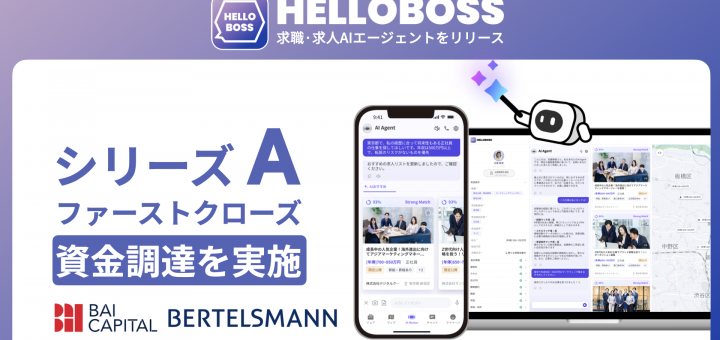
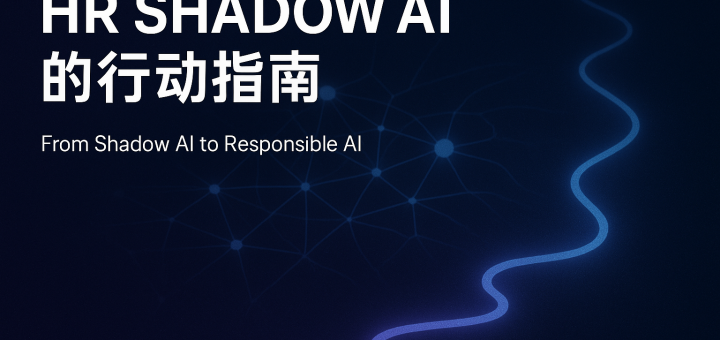

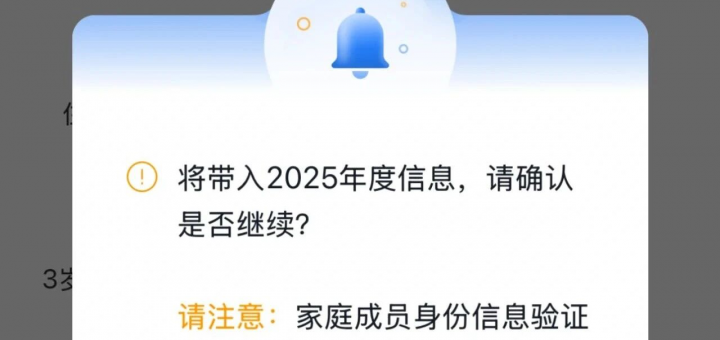
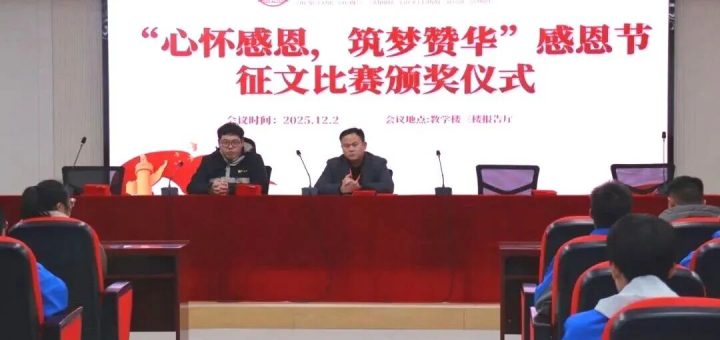
 扫一扫 加微信
hrtechchina
扫一扫 加微信
hrtechchina

